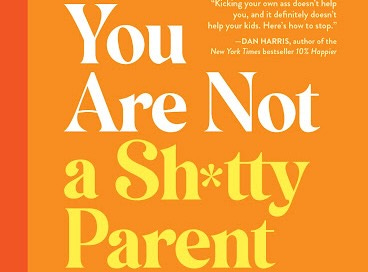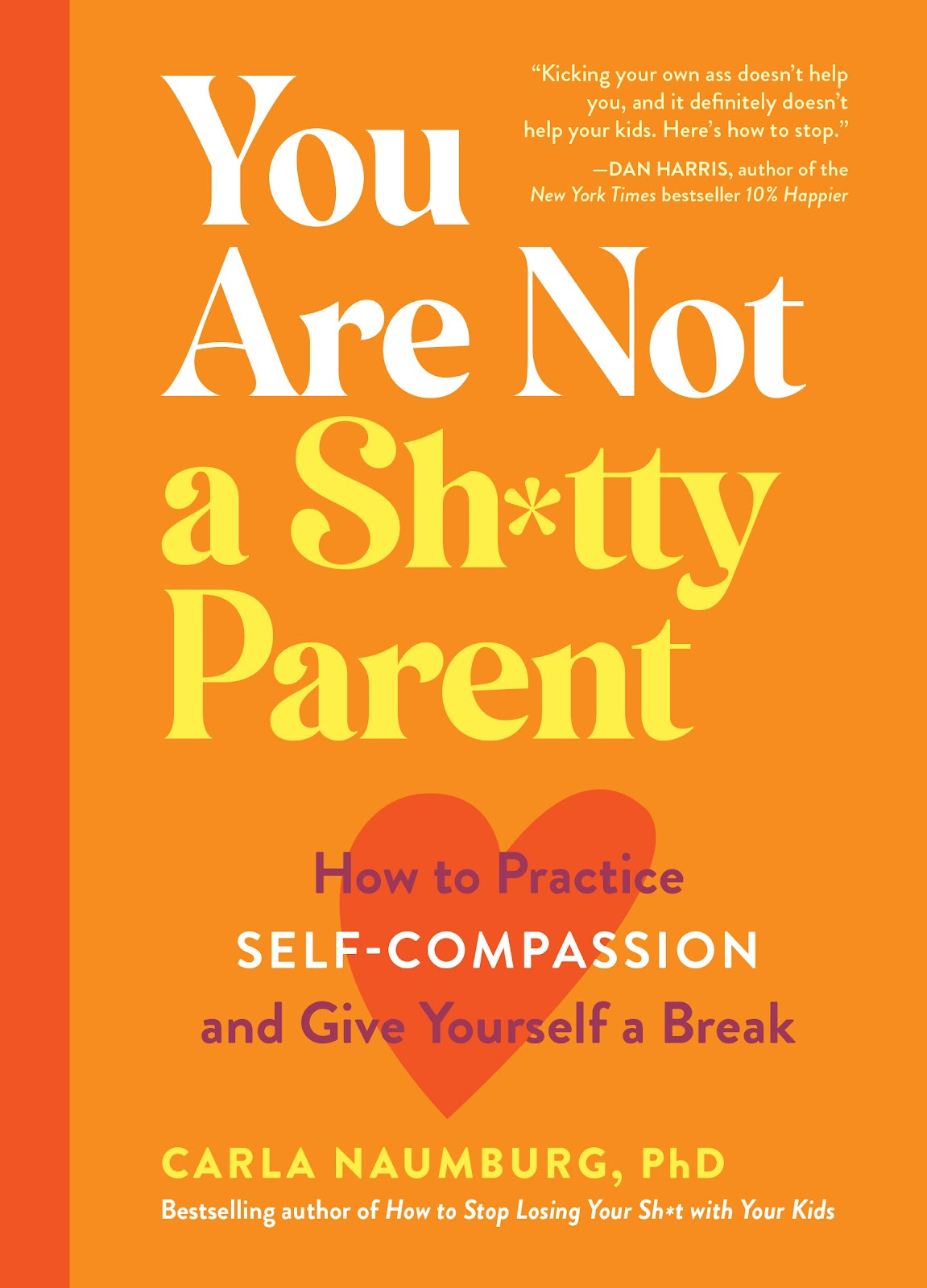How To Stop Thinking You're a Shitty Parent
The antidote is self-compassion. Here's how to nurture it.
Hi everyone! Today’s Q&A is one I really benefited from — one I deeply needed — and that I bet many of you will appreciate, too. How often do you feel like a terrible parent? How many times a week do you judge yourself based on your kids’ behavior or because of something you did that you think you shouldn’t have — given your kids too much screen time, perhaps, or yelled at them when you should have taken a few deep breaths instead?
I judge myself all the time, which is why I’m thrilled to be running an interview today with clinical social worker and parenting author Carla Naumburg, whose fantastic new book You Are Not a Sh*tty Parent: How to Practice Self-Compassion and Give Yourself a Break comes out today. Carla is chock full of wisdom, and she’s funny as hell and swears a lot, so of course I had to interview her. In all seriousness, though, I hope you read this interview in its entirety, because Carla shares essential tips for understanding and rising above negative self-talk — and explains why doing so is very important (and helpful) for us and our kids. Then, I highly recommend that you order a copy her book You Are Not a Sh*tty Parent, because there are lots more insights in the book.
My first question for you, Carla, is pretty fundamental. Why are we as parents always second-guessing ourselves? I am constantly having to try to shush the voice in my head that’s telling me I’m screwing up. Why is there an epidemic of what you call in your book “Shitty Parent Syndrome?”
This is a topic I think about a lot, and I also struggle with. I would say I'm in partial remission from Shitty Parent Syndrome.
I tend to think of the answer as having to do with both the very distant past and the very real present. And when I talk about the distant past, I'm thinking about the way the human brain evolved to focus on the negative as a means of survival. Our brains were designed to keep a constant awareness — a looking out for anything that could be going wrong. Anything that could be a threat. Our brains, fundamentally, are there to keep us alive, and they don't really care, at the end of the day, whether or not the way we're thinking about things feels good, or is accurate, or is helpful. The anxious brain really is about: What am I doing wrong? And what can I do better to keep myself and my kid alive?
The other thing that I think many people don't realize is evolutionarily baked into our brain is the tendency to compare ourselves to other parents. And the reason that exists is because being a part of the tribe, the community, the village, is a really important survival mechanism — because when you're out alone in the tundra, you’re going to get eaten by a woolly mammoth. And so we evolved to constantly be aware of our community, so that we could notice: Am I doing anything drastically differently from the people in my tribe that may get me kicked out? And if I am, I need to change it.
Now jump ahead thousands and thousands and thousands of years, and we are no longer comparing ourselves to the people who live on our blocks, in our neighborhood— the people who may be dealing with the same environmental, communal, financial, social, religious contexts that we're dealing with. We're comparing ourselves to everyone on the planet, including parents who have vastly different challenges and resources than we do.





